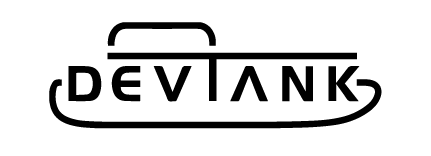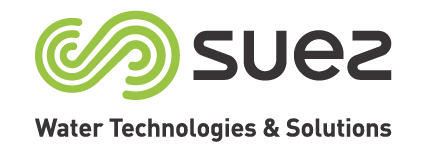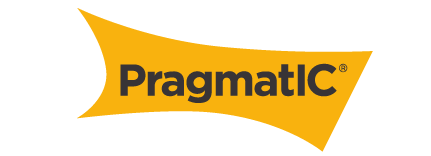An uncomfortable truth is that electronics is globally one of the most polluting industries. Semiconductors (“chip manufacturing”) is overtaking automakers with the world’s largest chip producer TSMC (Taiwan Semiconductor Manufacturing Corporation) now producing more CO2 than GM (General Motors), and Intel rapidly approaching this crossover threshold (source: Bloomberg).

World leader TSMC (57% market share) use 150,000 tons of water every day. In 2021, Taiwan had a drought which diminished their supply from reservoirs, necessitating water imports of $500Mn from overseas.
INSPIRE (Integrated Sustainable Production through Innovative Resource Efficiency) project is a £2.4M funded project through the Innovate UK Made Smarter Innovation Challenge, that focuses on the decarbonisation, improved resource efficiency and improved productivity of semiconductor production through the deployment of new digital manufacturing technologies.

Hydrocells will lead the implementation of active water management, with rainwater capture, in situ monitoring and smart separation of influent and effluent streams, married with to real-time weather forecasts. The approach minimises and, eventually eliminates, the use of tap water and sewage discharge to manage peak-flows. These events present serious health risks to the general public, for example open-water swimmers can be exposed to sewage following these events resulting in illness.
Many other industries such as beverages, textiles, farming, also use huge volumes of water as part of their manufacturing processes. For example, it takes 2,866 gallons of water to create a single pair of jeans, and 328 gallons of water to produce a 2-litre bottle of soda. These industries can benefit from innovation in rainwater capture and management – particularly those which are in areas that are liable to droughts or monsoons. Balancing weather forecasting, input supply, storage and recovery supporting local flood management.
Manufacturing contributes far more to CO2 than use, for an Apple iPhone this is almost 80% of its total carbon footprint, >50% of which is due to the integrated circuit (IC or “chip”). (Source: https://arxiv.org/pdf/2011.02839.pdf)
Even projecting 100% renewable energy supply only eliminates 60% of the emissions with the remainder fixed embedded carbon within chemicals/gases and heating/cooling. Semiconductors are currently booming with large-scale investments in new production facilities already well advanced across the globe. The energy requirements of these new facilities will counterbalance against beneficial carbon reductions from moving to more sustainable renewable energy supply. In reality many of the players will continue to use existing electricity generation methods.
Despite having only a modest semiconductor production capability the UK is the base for PragmatIC Semiconductor which has developed the world’s most sustainable semiconductor manufacturing technology. By avoiding high-energy processing and intrinsically focusing on building technology fit-for-purpose rather than “performance-at-any-cost”, PSL has already developed a manufacturing process than uses 100x less energy and water than a silicon “fab” and results in 1000x lower CO2e.
PSL is building a new high-volume manufacturing facility at an investment of >£40Mn and scheduled to come online end of 2022. Once complete this will be the UK’s first 300mm semiconductor fab. INSPIRE presents an opportunity to develop and demonstrate new methodologies which can be a flagship project within the semiconductor industry and support a move to net zero manufacturing process both within the UK and internationally. PSL aims to scale manufacturing globally through local installation and operation of manufacturing-lines sited next to demand. Many of these approaches can be transferred into the mainstream semiconductor and electronics manufacturing sectors.
INSPIRE focuses on decarbonisation, improved resource efficiency and improved productivity (all intrinsically linked). Distributed sensors (both existing and additional) across PSL’s manufacturing system generate data which will be used as follows:
“Smart” influent water control including rainwater capture and storage linked to weather forecast
Optimising influent water quality to meet “good enough” quality through tuneable water treatment
Effluent recovery through onsite treatment and return
Replacement of organic solvents with aqueous/gaseous alternatives to reduce VOC content
Optimisation of high-quality nitrogen quality and usage requirements
Development of machine-learning approaches to manufacturing optimisation
Fit to Made Smarter Innovation: Sustainable Smart Factory
INSPIRE fits with Strand 1 – our key theme being a focus on IDTs including artificial intelligence (AI), machine learning (ML) and data analytics, extending to connected factories as part of Industrial Internet-of-Things (IIoT) and Industry 5.0.
Our consortium is led by SME PragmatIC Semiconductor Ltd (PSL) - the world leader in ultra-low-cost flexible electronics – who will provide the manufacturing system on which the project will be demonstrated. PSL will additionally bring data analytics and life-cycle assessment methodologies.
SME DevTank (DTL) will bring expertise on sensor integration, specifically ensuring interoperability of sensors using open standards with analysis software.
SME Innoflow Ltd (HcL), in conjunction with Northumbrian Water Group (NWG), will employ their smart connected water management system (“Hydrocell”) and hydrological modelling capability within the project. The goal here is to demonstrate rainwater capture and management including storm prediction and flood mitigation.
Global water management specialists SUEZ Water Technologies & Solutions (“SWTS”) will use their expertise to analyse, deploy and optimise water treatment and management solution towards lowest possible energy consumption.
Jumping Rivers (JR), who specialise in analytics, will deploy their data and machine learning skills to assist with data management/filtering, visualisation and ML approaches to develop algorithms for efficient manufacturing.
Technic are one of the leading suppliers of speciality chemicals to the semiconductor and electronics industries. They will bring their latest generation formulations to the project with the goal of eliminating bulk VOC (volatile organic chemical) from PSL’s process. Technic has the capability to reformulate based on feedback from trials.
The INSPIRE project fits with themes of smart connected factories, connected and versatile supply chains and adaptable, flexible manufacturing operations and skills.
INSPIRE delivers both resource and energy efficiency, focused initially on semiconductor manufacturing - globally a high user of water and energy.
Specific digital innovations include:
Rainwater recovery and active management linked to local weather forecasting, balancing input supply with flood management
Analysis, monitoring and optimisation of process water to meet “good enough” quality linked with manufacturing process control monitoring (PCM) data
Wastewater recovery and reuse through analysis and monitoring of effluent linked with manufacturing PCM data
Development of ML models and methodologies to manufacturing optimisation through assessment of disparate data sources (environmental, process, parametric)
Resource efficiency innovations include:
Reduction of VOC and neuroinhibitor usage through evaluation and assessment of impact on manufacturing PCM data
Optimisation of process gas supply (e.g. ultrapure N2) to meet “good enough” quality linked with manufacturing (PCM) data
How the digital innovation will result in an overall reduction in material or energy consumption
Manufacturing sectors involved in the project include:
semiconductors (PSL, Technic)
speciality chemicals (Technic)
water industry (SWTS, NWG, HcL)
IIoT and digital manufacturing (DevTank, PSL)
AI/ML (PSL, JR)
Project outputs should have broad applicability across multiple manufacturing sectors, including:
Rainwater capture and management – any sector with high water usage in addition to built-environment planning to reduce flooding risks e.g. residential housing.
Speciality chemicals – crossover into over semiconductor sectors and mainstream electronics
IIoT – connected factories across multiple industries which require specific purity of process water and/or process gases
ML/AI methodologies that can be replicated to a range of industries
Post-project exploitation will include:
Standardisation of PSL’s FlexLogIC facilities for global roll-out
Translation of water treatment and management learnings to global semiconductor and electronics sectors (SWTS)
Replacement of VOC-based chemistries across the global semiconductor industry (Technic)
Adoption of smart connected factory principles to various industry sectors (DevTank)
Roll-out of HydroCell approach across high-risk areas within the North-East (HcL, NWG) and translation across the rest of the UK (SWTS)
Project outputs include:
Demonstration of connected manufacturing system with sensorisation
Bespoke calculators for sustainability (water)
Report detailing quality requirements for supply (water, gases, etc.)
Quantified carbon reductions across whole manufacturing process including LCA (before and after the project)
Facilities specification for roll-out of FlexLogIC manufacturing systems globally
Whitepaper/industry article on VOC-free alternative chemistries and their use in semiconductor (and related) manufacturing
ML algorithms linking disparate data-streams (process/environmental/parametric) with KPIs (energy consumption, product yield)
The project aims to reduce carbon emissions of PSL’s production process by over 6,000,000 kg (6 Million) CO2 per year, through reductions in offsite transportation in waste, minimisation of tap-water and, where possible, elimination of VOCs from waste-streams. This translates to ~50% reduction in CO2e from influent/effluent during the project rising to >90% 3 years after the project.
New jobs will be created during the project across data analysis, software engineering, equipment engineering, maintenance, project-management, LCA/Circular Economy specialists. Successful exploitation of project outputs is expected to support additional job growth across the whole consortium and supply-chain.






